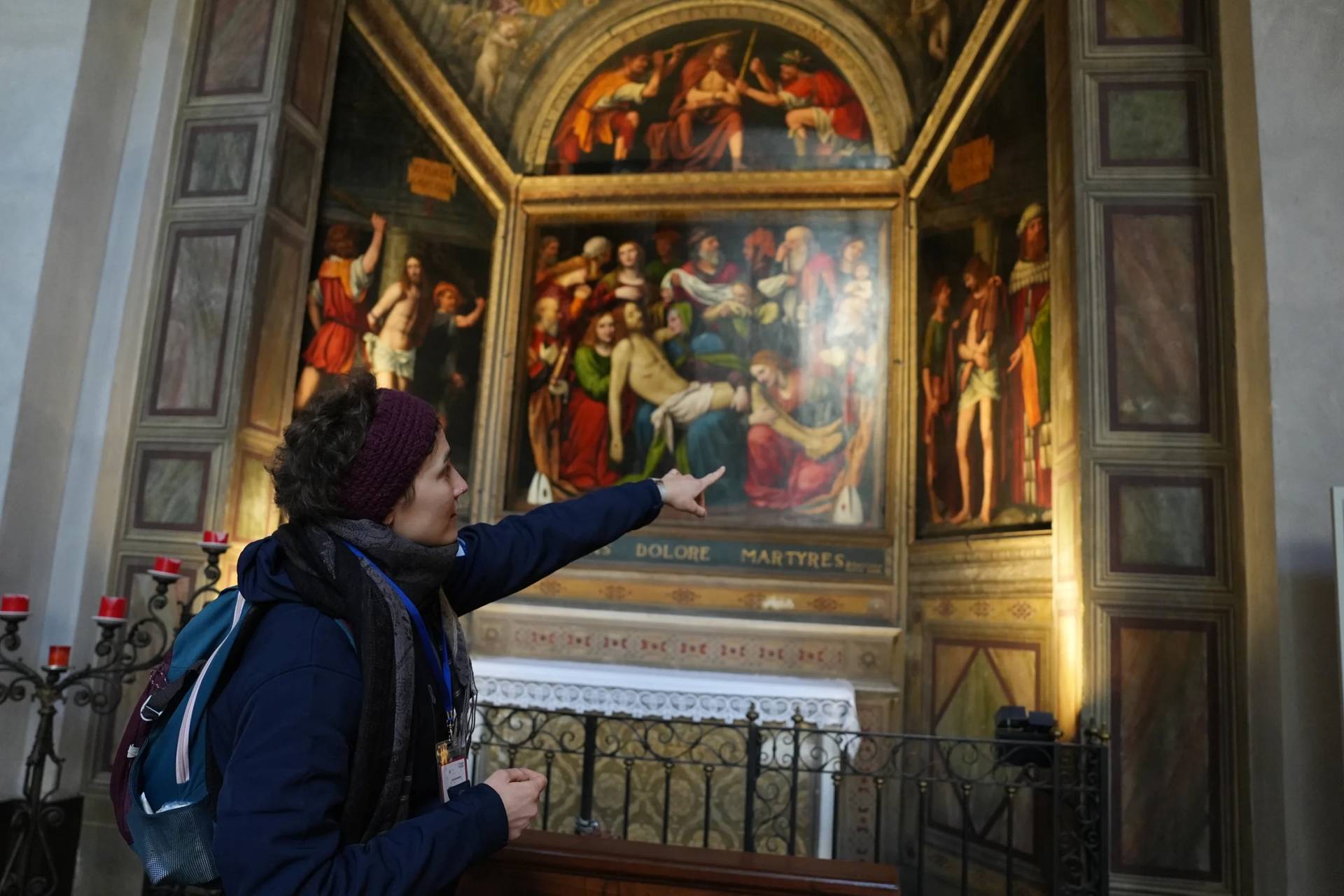ROME – Sorrento, a small town of 17,000 people on Italy’s Amalfi coast, is among the country’s most popular high-end tourist destinations, so it’s entirely possible a new measure barring erotic goods stores and cannabis shops in the city center may be motivated, at least in part, by a desire not to drive away its desired demographic.
That’s an especially plausible hypothesis, given that official statistics indicate a whopping 91 percent of Sorrento’s annual Gross Domestic Product of $620 million is generated by the tourism sector.
Such exigencies, however, are not the official explanation for the new measure given by Sorrento Mayor Massimo Coppola. Instead, he said he was acting to protect the sensibilities of old ladies going to Mass.
“I believe I’ve only interpreted the sensibilities of my fellow citizens, Coppola said in a recent interview. “I have to take care of everybody, including the elderly.”
“Think about ladies of a certain age who go to Mass,” said Coppola, who was elected in 2020 as part of a conservative coalition. “With a sex shop in the vicinity, they might have felt under-protected. Who do you think they’d blame for that?”
The political concern might be justified, given that the demographics of Sorrento’s residential population, like much of the rest of Italy, is skewing rapidly towards the elderly. According to 2022 statistics, there are 200 people in the city above 65 years of age for every 100 under 14, and 52 percent of them are women.
In other words, there actually is a significant population of elderly ladies, many of whom presumably do go to Mass – and who probably also vote.
Coppola insisted, however, that he hadn’t acted under any pressure from the local church, led by Archbishop Francesco Alfano of Sorrento – Castellammare di Stabia.
“I just used my brain,” Coppola said. “We Sorrentines live our sexuality in reality, as protagonists. We don’t need phalluses exposed in a window.”
(Coppola claimed he’d once seen a health store displaying sexual lubricants, dildos and vibrators in a window, but said “now it’s being contained.”)
According to the terms of a Nov. 7 decree signed by Coppola, erotic goods stores and shops selling cannabis are now banned if located within roughly 200 yards of a church, shrine or other place of worship, as well as schools, cemeteries, hospitals, playgrounds, theaters, cinemas and parks.
Given the ubiquity of such venues in the heart of Sorrento, the measure effectively means such enterprises are barred entirely from the city center. The measure also bans advertising of such products in the same zone, even if the objects are actually sold somewhere else.
It was not the first time Coppola acted to project a more family-friendly ethos. Prior to his election, he noted, a hemp shop had displayed a cut-out of Bob Marley on the sidewalk outside. After he took over, Coppola noted, he withdrew permission for the shop to use a public sidewalk.
Perhaps tellingly, Coppola suggested that his new measure will promote Sorrento’s attractiveness to higher-end tourists.
“The opening in the area of commercial establishments such as so-called ‘sex shops,’ together with establishments that market hemp products and derivatives to the public, can harm the ethics, the morals and the sensitivities of residents and tourists,” he said.
“My administration wants to promote well-regulated commerce, decorous and not of a low level,” Coppola said. “Otherwise, we risk becoming an open-air fryer, where anything goes.”
“If a tourist needs some erotic object, he can always buy it on the internet,” he added. “That way, his privacy too is protected.”












